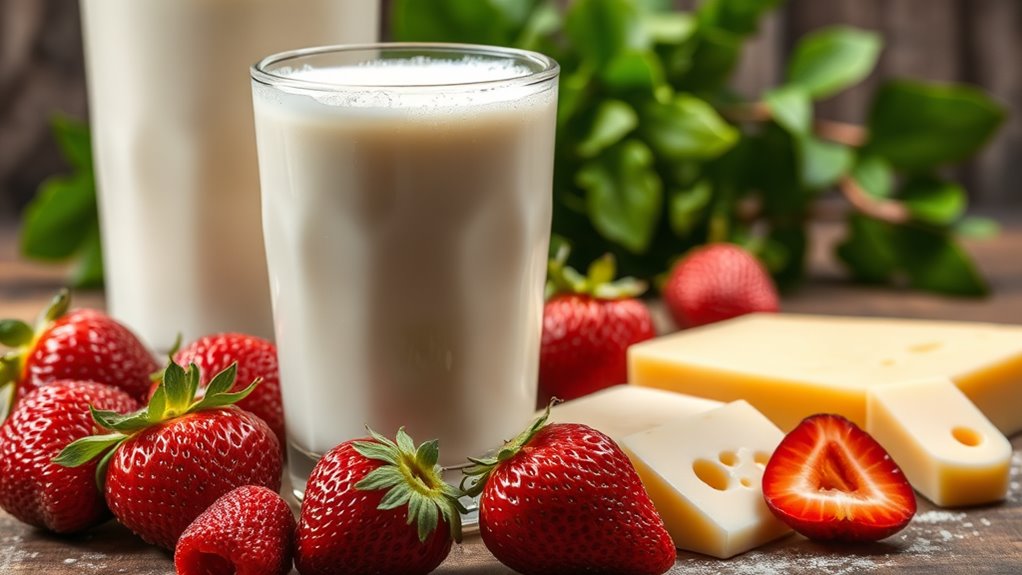You Don’t Need to Quit Dairy Unless This Applies to You
Many people assume they need to eliminate dairy from their diet for various reasons, but that’s not necessarily true. If you’re not experiencing symptoms like bloating or skin reactions, you might not need to quit. Understanding lactose intolerance and dairy allergies can help clarify whether dairy is suitable for you. Let’s explore when it might be necessary to cut back and what nutritional benefits you could be missing out on.
Common Misconceptions About Dairy
Common misconceptions often stem from dairy facts being misinterpreted.
While some claim it contributes to health issues, studies reveal that moderate dairy consumption can offer benefits like calcium and protein. Furthermore, understanding the role of carbohydrates in diets can help clarify the nutritional balance one needs.
It’s essential to separate myths from science, recognizing that many people can enjoy dairy without adverse effects.
Lactose Intolerance: Signs and Symptoms
Although many people enjoy dairy products without issue, lactose intolerance affects a significant portion of the population.
If you experience symptoms like bloating, gas, diarrhea, or stomach cramps after consuming dairy, you might be lactose intolerant. These symptoms occur when your body struggles to digest lactose, the sugar in milk.
Recognizing these signs can help you manage your dairy intake effectively.
Dairy Allergy: Understanding the Risks
If you suspect you’re at risk for a dairy allergy, understanding the potential dangers is crucial. Dairy allergies can cause various reactions, from mild hives to severe anaphylaxis. Here’s a quick look at common reactions:
| Reaction Type | Severity |
|---|---|
| Hives | Mild |
| Stomach cramps | Moderate |
| Vomiting | Moderate |
| Difficulty breathing | Severe |
| Anaphylaxis | Life-threatening |
Recognizing these signs can help you stay safe.
Health Conditions That May Require Dairy Elimination
Recognizing the signs of a dairy allergy is important for your safety, but there are other health conditions that might prompt you to eliminate dairy from your diet.
Lactose intolerance, gastrointestinal issues, and certain skin conditions like eczema can worsen with dairy consumption.
If you experience symptoms like bloating or skin flare-ups, consider consulting a healthcare professional for personalized guidance on dairy elimination.
Nutritional Benefits of Dairy to Consider
Dairy offers a host of nutritional benefits that can enhance your overall health. It’s rich in calcium and vitamin D, essential for bone strength.
Additionally, dairy provides high-quality protein, improving muscle repair and growth. The probiotics in yogurt promote gut health.
If you tolerate it well, incorporating dairy can play a vital role in a balanced diet and support overall well-being.



